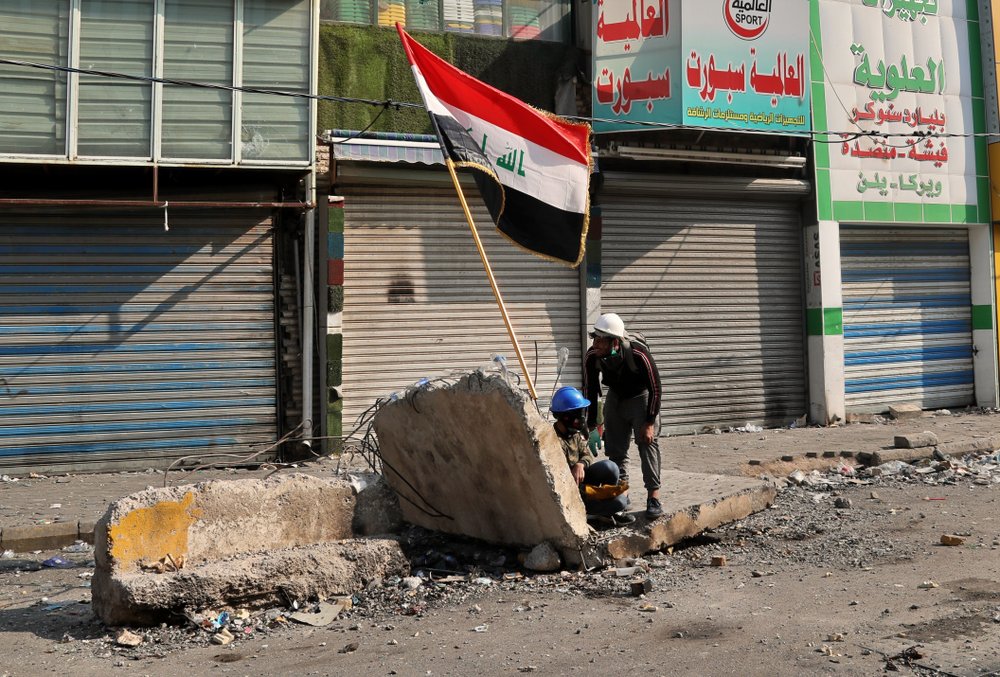
BAGHDAD (Reuters) — Protesters blocked roads with burning tires in southern Iraq and clashed with police in Baghdad on Wednesday, aiming to disrupt the economy and jolt complacent authorities into meeting their demands for an overhaul of corrupt governance.
In Iraq’s southern oil capital of Basra, demonstrators prevented government employees getting to work by installing concrete barriers painted as mock-up coffins of relatives killed in weeks of unrest, a Reuters witness said.
Security forces shot dead more demonstrators overnight. In the holy city of Karbala, south of Baghdad, they used live ammunition against protesters, killing two.
Near Basra one protester died of wounds from gunfire, police and medics said, bringing the toll since unrest broke out on Oct. 1 to 344 people dead nationwide.
“First we were demanding reform and an end to corruption,” said Ali Nasser, an unemployed engineering graduate protesting in Basra.
“But after the government started killing peaceful protesters we won’t leave before it’s been toppled together with the corrupt ruling class.”
“The reforms are just words. We want actions. We’ve had 16 years of words without actions. We have been robbed for 16 years,” said Alia, a 23-year-old medical student.
Iraq’s large and mainly peaceful protests are the most complex challenge to a Shia Muslim-dominated ruling class that has controlled state institutions and patronage networks since a 2003 U.S.-led invasion toppled Sunni dictator Saddam Hussein.
Young, mostly Shia protesters say politicians are corrupt and blame them for Iraq’s failure to recover from decades of conflict and sanctions despite two years of relative calm following the defeat of Islamic State.
Prime Minister Adel Abdul Mahdi expressed concern over both the violence and the financial toll of unrest in a televised cabinet meeting late on Tuesday, but mostly blamed unidentified saboteurs for the damage.
“There have been martyrs among protesters and security forces, many wounded and arrested … we’re trying to identify mistakes” made by security forces in trying to put down the protests, he said.
Protesters have repeatedly blocked traffic into Iraq’s main commodities port near Basra this month and have tried to surround the Central Bank in Baghdad, apparently determined to cause economic disruption where simple calls for removal of the government have failed.
The government is moving slowly in enacting any kind of change. Promises of electoral reform and an early general election have yet to be ratified by parliament, and the political class has closed ranks in the face of a significant challenge to its grip on power.
Reporting by John Davison, Ahmed Aboulenein, Baghdad newsroom, Editing by William Maclean
Image: Anti-government protesters take cover during clashes with security forces on Rasheed Street, in Baghdad, Iraq, on Tuesday (AP Photo/Khalid Mohammed)




